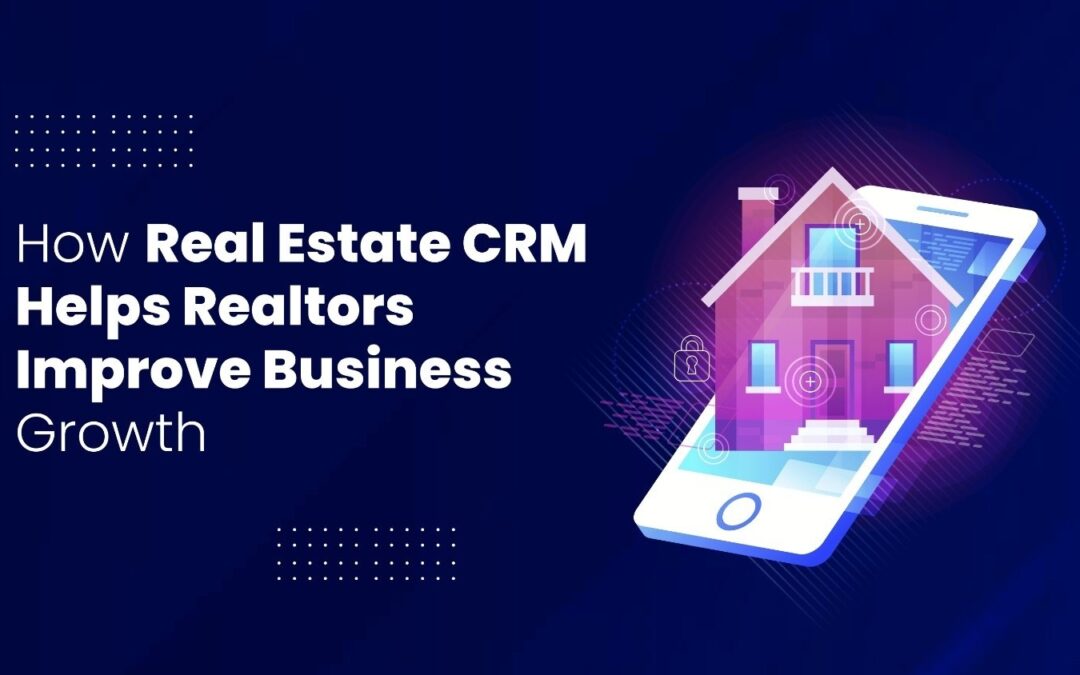In today’s competitive property market, real estate agents must manage leads well. They need to respond quickly to client needs and close deals faster. Many people need to keep track of things, like property listings and buyer questions. It’s easy to miss opportunities with all the follow-ups and paperwork involved.
A real estate CRM truly transforms the way property businesses operate. By streamlining tasks, organizing client information, and automating communication, it enables realtors to focus on what matters most: building relationships and closing sales.
Why Realtors Need Smarter Tools to Manage Clients
Every realtor knows that real estate is about more than just selling homes. It’s about building trust, maintaining relationships, and staying responsive to clients. Without the right system in place, managing multiple conversations, property details, and follow-ups becomes chaotic.
A real estate crm helps by bringing all data together. This includes new leads, ongoing negotiations, and property listings. It helps save valuable time while making sure no opportunity slips away.
Key Benefits of Using Real Estate CRM
A real estate CRM goes beyond basic contact management. It provides features tailored for realtors that can directly boost productivity and sales growth:
- Better Lead Tracking: Realtors can capture, categorize, and prioritize leads efficiently.
- Automated Follow-Ups: The system sends reminders and notifications to ensure no client is forgotten.
- Property Management: Store details like location, pricing, and availability for quick access.
- Client Insights: Track buying behavior, preferences, and past interactions.
- Mobile Access: Manage deals on the go, whether meeting clients or visiting properties.
By using these tools, realtors can move from manual work to building better client relationships and closing more deals.
How Automation Improves Productivity
One big advantage of using a real estate CRM is that it uses automation to save time. Instead of updating records or sending reminders manually, realtors can rely on the system to handle repetitive tasks.
For example:
- Emails and text follow-ups can be scheduled automatically.
- Lead scoring highlights the most promising prospects.
- Performance reports show which strategies bring the best results.
This allows agents to focus less on paperwork and more on nurturing clients and sealing deals.
Integration With Sales Tools for Better Growth
While a real estate CRM is powerful on its own, its full potential is unlocked when integrated with Sales CRM Software. Together, these tools create a complete system that supports both sales and property management.
Key advantages include:
- Converting prospects into clients faster
- Gaining a clear view of sales performance
- Personalizing interactions based on client history and preferences
This integration ensures that no lead slips through the cracks and realtors can focus on growing their business efficiently.
How CRM Tools Enhance Real Estate Sales
With sales crm software, realtors can easily handle clients, monitor leads, and speed up deal closures. Instead of juggling spreadsheets or manual notes, you can store everything in one organized system. This makes it easier to respond quickly, follow up on time, and build stronger client relationships.
Key benefits for real estate agents include:
- Better lead tracking – No missed inquiries or opportunities.
- Quick responses – Access client history and property details instantly.
- Team collaboration – Share updates and notes in real time.
- Smarter insights – Use data reports to improve sales strategies.
Sales CRM Software makes daily tasks easier. It provides agents with a transparent overview of their entire sales pipeline. This helps realtors focus on what matters most—closing deals and growing their business.
Real-World Impact on Business Growth:
Many real estate agencies have adopted real estate CRM solutions to improve efficiency:
- Small Firms: Limited staff can handle more clients without being overwhelmed.
- Growing Agencies: Smooth collaboration among team members and centralized client data.
- Large Developers: Efficiently manage thousands of prospects, investors, and projects.
These real-world cases show how CRM tools scale with the size of the business and improve overall performance.
Overcoming Challenges in Real Estate Sales
Realtors often face slow response times, inconsistent follow-ups, and difficulty managing client expectations. Without a proper system, these challenges can lead to lost deals.
By adopting a real estate CRM, agencies can overcome these barriers. Quick communication tools, deal-tracking dashboards, and Sales CRM Software integration help reduce delays. They also improve customer experiences.
The Future of Real Estate Business Growth
As technology evolves, CRM tools will become even more essential. AI-driven insights, predictive analytics, and enhanced automation will help realtors:
- Predict client needs before they arise
- Automate routine tasks for greater efficiency
- Gain deeper insights into buyer behavior
- Maintain a competitive edge in a crowded market
A real estate CRM goes beyond being just another software—it’s a complete growth partner. It is the base for smarter, faster, and more profitable real estate businesses.
Conclusion
In a fast-paced property market, relying on outdated methods is no longer enough. Realtors need systems that organize data, streamline workflows, and support business growth. A real estate CRM provides exactly that—better client management, stronger relationships, and more closed deals.
When paired with Sales CRM Software, realtors gain a complete ecosystem to track sales, manage properties, and boost productivity. The result? Increased client satisfaction, faster deal closures, and sustainable business growth.
For real estate professionals aiming to scale, adopting a CRM isn’t just an option—it’s a smart investment for long-term success.





